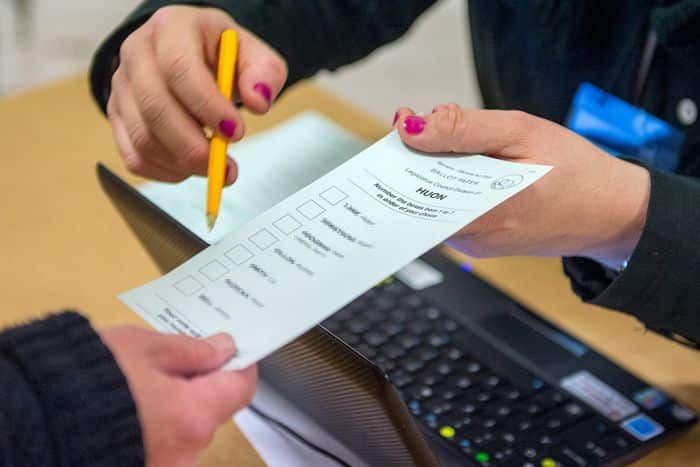With the Canadian Federal Election taking place on October 21st and the US Presidential election slated for 2020, it’s a perfect time for us researchers to reflect upon sampling, declining response rates, margins of error, and questionnaire wording for federal election polling surveys.
Those of you who are not researchers or analysts have probably been wondering, how truly representative are election polls, and can they still lend credibility to predicted election results in a world of declining response rates?
Looking back on previous elections and their results, it’s clear that there are important takeaways and learnings from how election polls are conducted. These takeaways not only ensure that future election work is as representative as possible, but they also lend themselves to takeaways that can be transposed to other research projects.

- Ask the right questions to the right audience.
Political polling highlights the importance of asking the right questions. The wording of both the questions and answers will affect the outcome in different ways. For example, here are some considerations:
- Should you ask respondents for whom they will most likely vote for when the election takes place? Or who they would vote for if the election was held tomorrow?
• Should your question use the first names of the candidates, as they will appear on the ballots, and/or should you refer to each candidate’s party affiliation?
• Who are the intended respondents? (All registered voters? All adults of voting age? Anyone intending to vote? Only registered voters who voted in the past election?)
To answer any of these questions, you need to have some clear goals and objectives of why you are conducting the research. There are many types of political polls, and multiple reasons for conducting them. Trying to measure consumer or voter attitudes is different than trying to predict behaviour, which in turn is different from trying to forecast voter turnout.

- First know the why, then determine which method will get you there.
Most political polls are subjected to a huge amount of methodological analysis and critique. Was the poll conducted online or by phone? Did the pollster use live interviewers or automated dialing with interactive voice recordings? Was the sample selected through random digit dial (RDD) or targeted listings?Questions like these offer insights into the most important methodological challenges facing the research industry in a time of rapid technological and social change. It reminds everyone that the method is so important. The challenges are not just about qualitative versus quantitative or surveys versus focus groups, but also about design, fieldwork, respondent recruitment, data collection, statistical analysis, and interpretation.

- Think about the story rather than the numbers.
Search online for “elections results” and you’ll find a multitude of different polls released on a weekly basis. Most of the results are in alignment with each other, but a handful are notable in their approach because they make the story just as important as the outcomes.In those cases, the content is relevant, interest is high, and the stakes are made to feel huge. The story is moving, and it feels like you are one of those individuals they were reporting on. While every poll has the support from PR, marketing, and communication campaigns, it is always nice to see those select few polls that report on things, or from angles, that nobody else has explored yet.
Conclusion
When it comes to political polling, the aims and goals are so important that you need to know your approach before you even begin to start thinking about the method and the potential questions. However, once you have your direction, it becomes critical to do more than show the numbers—you must also show the story behind those numbers to make your content relevant and interesting… and to really resonate with your audience.
About Jake
![]() Jake Pryszlak, commonly known as the Research Geek, is a 3-time award-winning market researcher, blogger and speaker. He’s a current Forbes columnist who is active across a plethora of social media channels. His aim is to share his market research knowledge with others in the industry. You can find his blog and social media channels here.
Jake Pryszlak, commonly known as the Research Geek, is a 3-time award-winning market researcher, blogger and speaker. He’s a current Forbes columnist who is active across a plethora of social media channels. His aim is to share his market research knowledge with others in the industry. You can find his blog and social media channels here.





